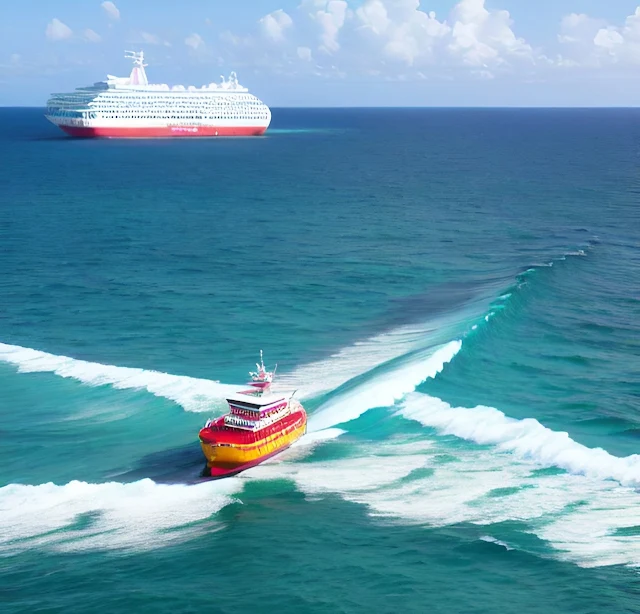Introduction
Offshore injury cases can be complex and challenging to navigate. If you've suffered an injury while working offshore, hiring the right lawyer is crucial to ensure you receive the compensation you deserve. Unfortunately, there are common mistakes that individuals make when hiring offshore injury lawyers that can jeopardize their claims. In this comprehensive guide, we'll highlight the seven biggest mistakes to avoid when seeking legal representation for your offshore injury case.
1. Not Researching the Lawyer's Expertise
One of the most significant mistakes is failing to research the expertise of the offshore injury lawyer you're considering. Offshore injury cases involve specific maritime laws and regulations. It's essential to hire a lawyer with experience in handling these types of cases to ensure you receive accurate guidance and representation.
2. Choosing Based on Price Alone
Selecting an offshore injury lawyer solely based on price can be a grave error. Quality legal representation often comes at a fair cost. Instead of solely focusing on fees, consider the lawyer's track record, experience, and success in handling similar cases.
3. Not Evaluating Communication Skills
Effective communication between you and your lawyer is crucial. Failing to evaluate a lawyer's communication skills can lead to misunderstandings, delays, and frustration. Choose a lawyer who is responsive, transparent, and willing to keep you informed throughout the process.
4. Overlooking Local Knowledge
Offshore injury cases may involve different jurisdictions and laws. Hiring a lawyer with local knowledge and experience is essential, as they will understand the intricacies of the local legal landscape, regulations, and potential challenges.
5. Delaying Legal Action
Delaying legal action can significantly impact the outcome of your offshore injury claim. There are statutes of limitations that determine the timeframe within which you can file a lawsuit. Waiting too long can result in the loss of your right to seek compensation.
6. Not Seeking Client Testimonials
Client testimonials provide valuable insights into a lawyer's reputation and the quality of their services. Neglecting to seek out client testimonials or reviews can lead to hiring a lawyer who may not have a strong track record of success.
7. Failing to Consult Multiple Lawyers
Rushing into a decision without consulting multiple offshore injury lawyers can be detrimental. Schedule consultations with several lawyers to compare their expertise, approach, and potential strategies. This will help you make a well-informed decision.
How to Avoid These Mistakes and Choose the Right Offshore Injury Lawyer
To avoid these mistakes and ensure you choose the right offshore injury lawyer, follow these steps:
- Research Extensively:
Research potential lawyers thoroughly, considering their experience, track record, and specialization in offshore injury cases.
- Prioritize Experience:
Choose a lawyer with a proven track record of success in handling offshore injury cases similar to yours.
- Communication Is Key:
During your consultation, assess the lawyer's communication skills and willingness to keep you informed.
- Verify Local Knowledge:
Ensure the lawyer has local knowledge and experience in the jurisdiction relevant to your case.
- Act Promptly:
Don't delay legal action; consult a lawyer as soon as possible to avoid missing important deadlines.
- Read Client Testimonials:
Read client testimonials and reviews to gauge the lawyer's reputation and the quality of their services.
- Consult Multiple Lawyers:
Schedule consultations with multiple lawyers to compare their approaches and make an informed decision.
FAQs
- Can I Handle an Offshore Injury Claim Without a Lawyer?
While it's possible to handle a claim on your own, hiring an experienced offshore injury lawyer greatly increases your chances of a successful outcome. Lawyers understand the legal complexities and can advocate effectively on your behalf.
- What Damages Can I Seek in an Offshore Injury Case?
You can seek various damages, including medical expenses, lost wages, pain and suffering, and compensation for any long-term disabilities resulting from the injury.
- What Is the Jones Act, and How Does It Apply to Offshore Injury Cases?
The Jones Act is a federal law that provides protection and compensation for seamen injured while working on vessels. It allows eligible offshore workers to seek compensation from their employers for injuries caused by negligence.
- Will I Have to Go to Court for My Offshore Injury Case?
Not all offshore injury cases go to court. Many are resolved through negotiations and settlements. However, having a lawyer prepared to go to court can strengthen your negotiating position.
- How Long Do I Have to File an Offshore Injury Lawsuit?
The timeframe to file an offshore injury lawsuit varies depending on the jurisdiction and the specific circumstances of the case. It's crucial to consult a lawyer promptly to ensure you meet any applicable deadlines.
- What Compensation Am I Entitled to for Emotional Distress?
Emotional distress compensation can cover the psychological impact of the injury, such as anxiety, depression, and PTSD. Your lawyer can help you assess the appropriate compensation based on your circumstances.
Conclusion
By avoiding these seven common mistakes and following the outlined steps, you can increase your chances of hiring the right offshore injury lawyer for your case. Remember that expert legal representation can make a significant difference in the success of your claim. Don't compromise on quality when seeking justice and compensation for your offshore injury.

Comments
Post a Comment